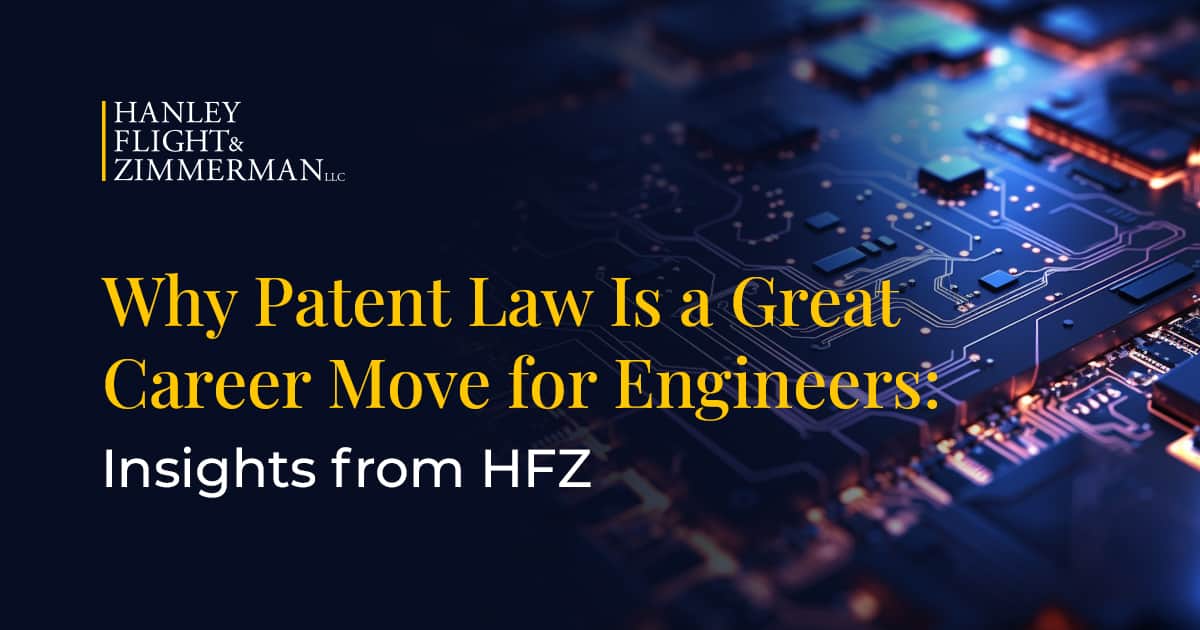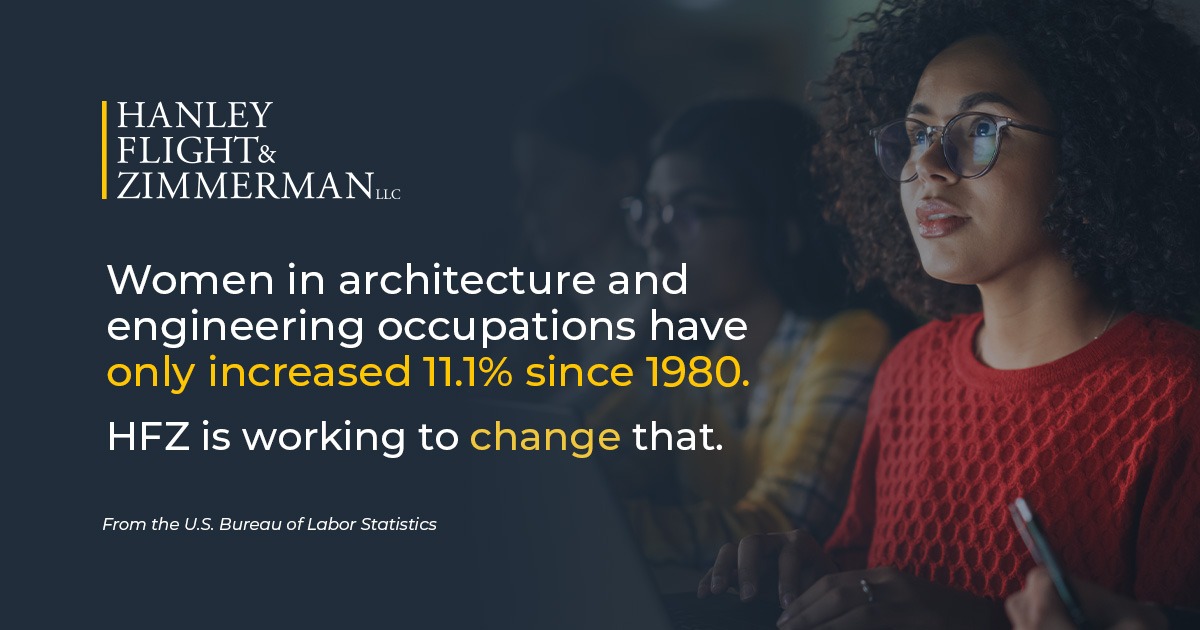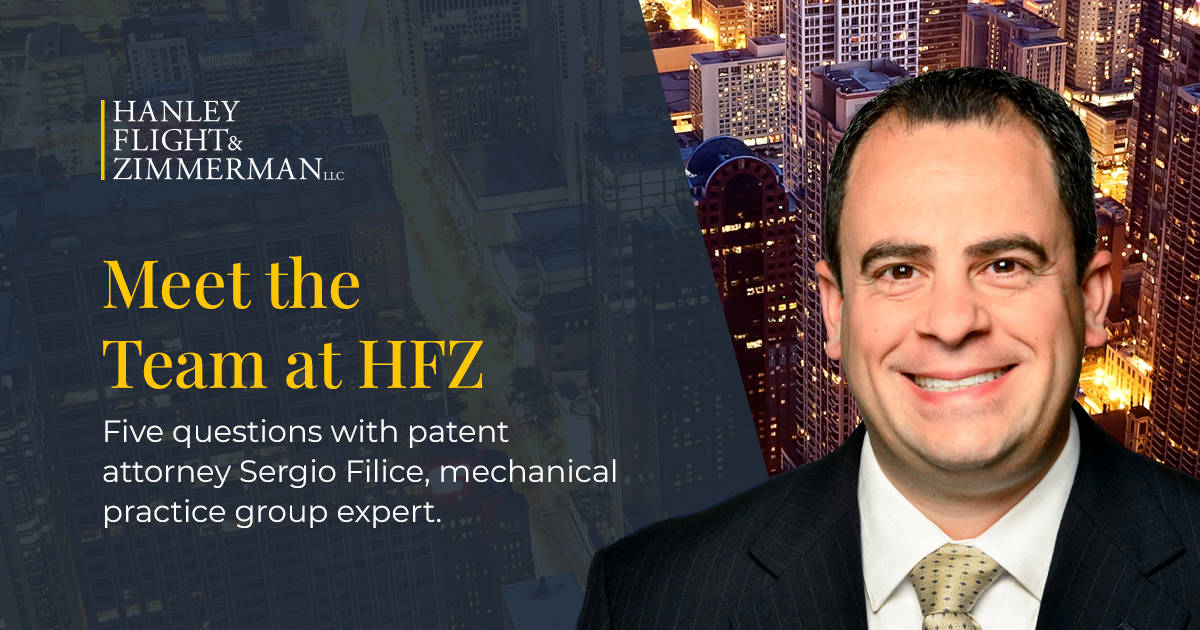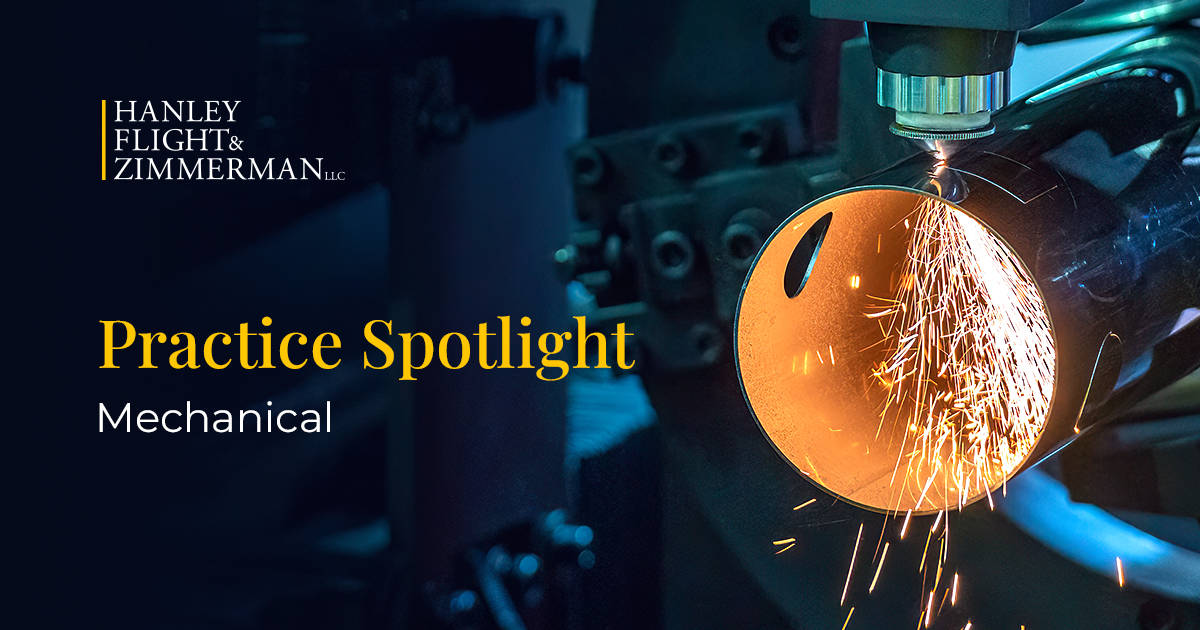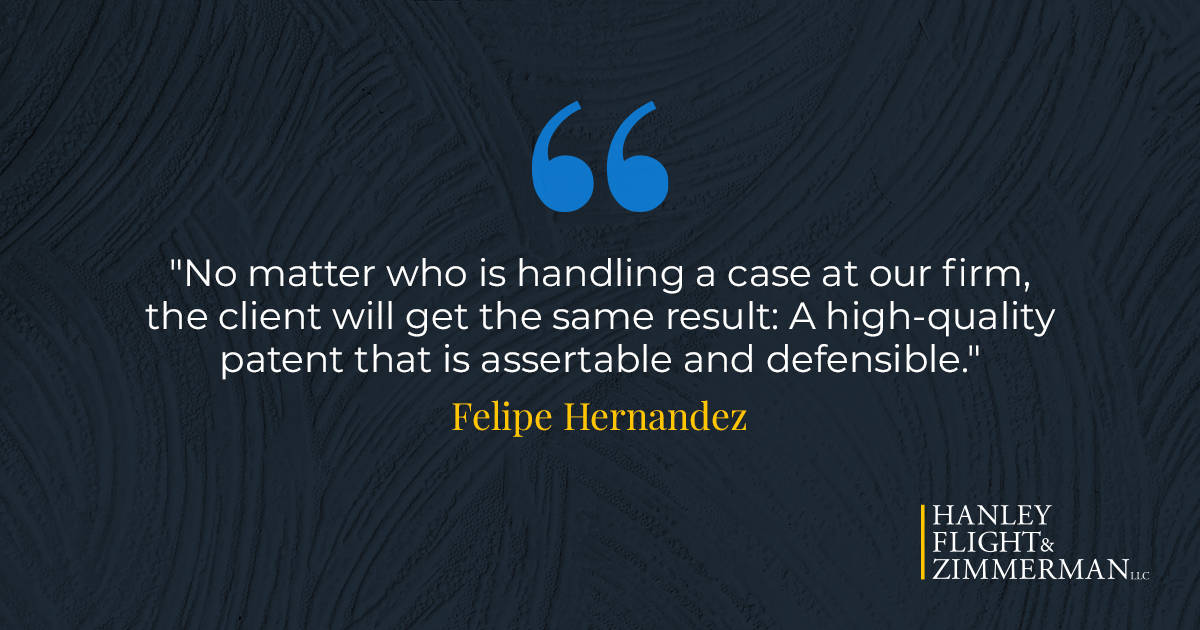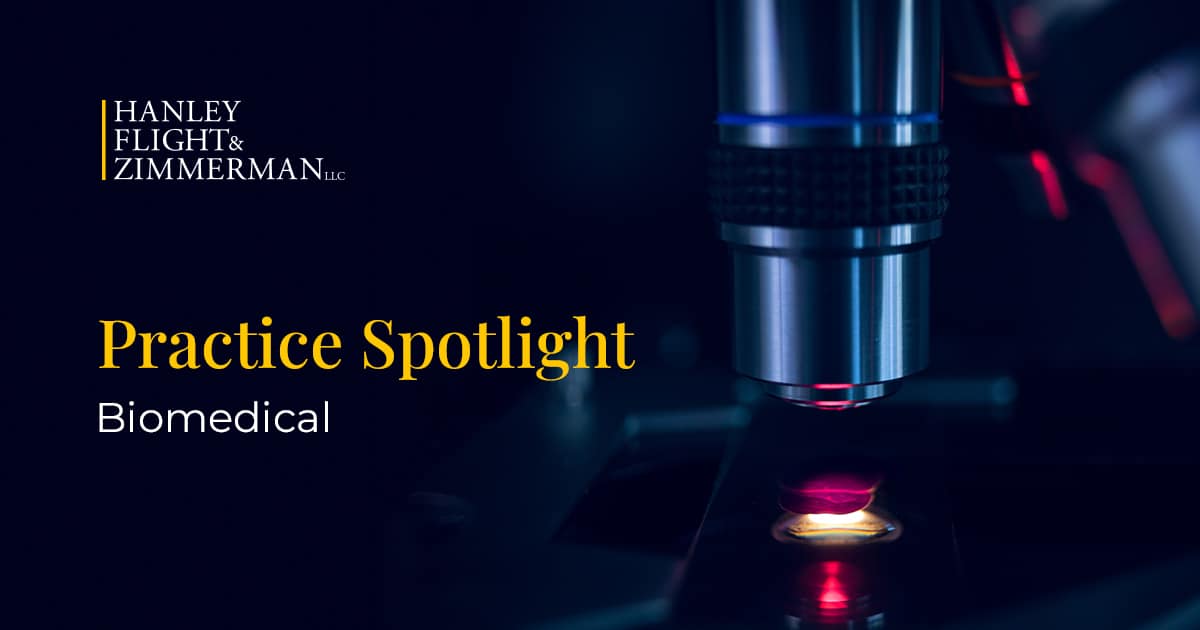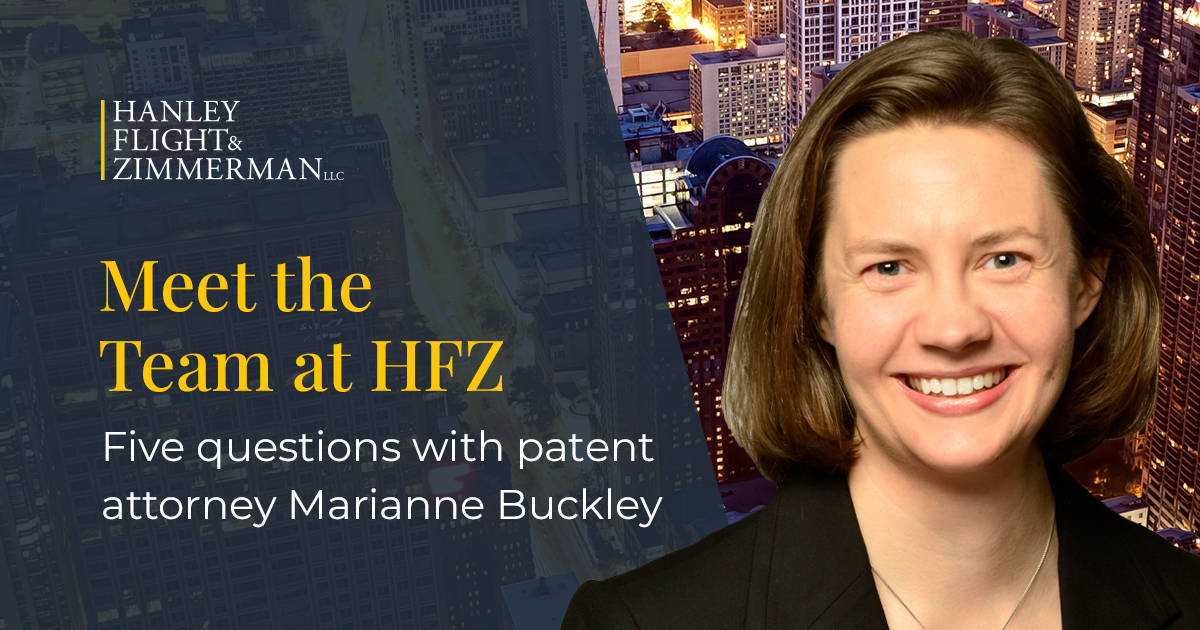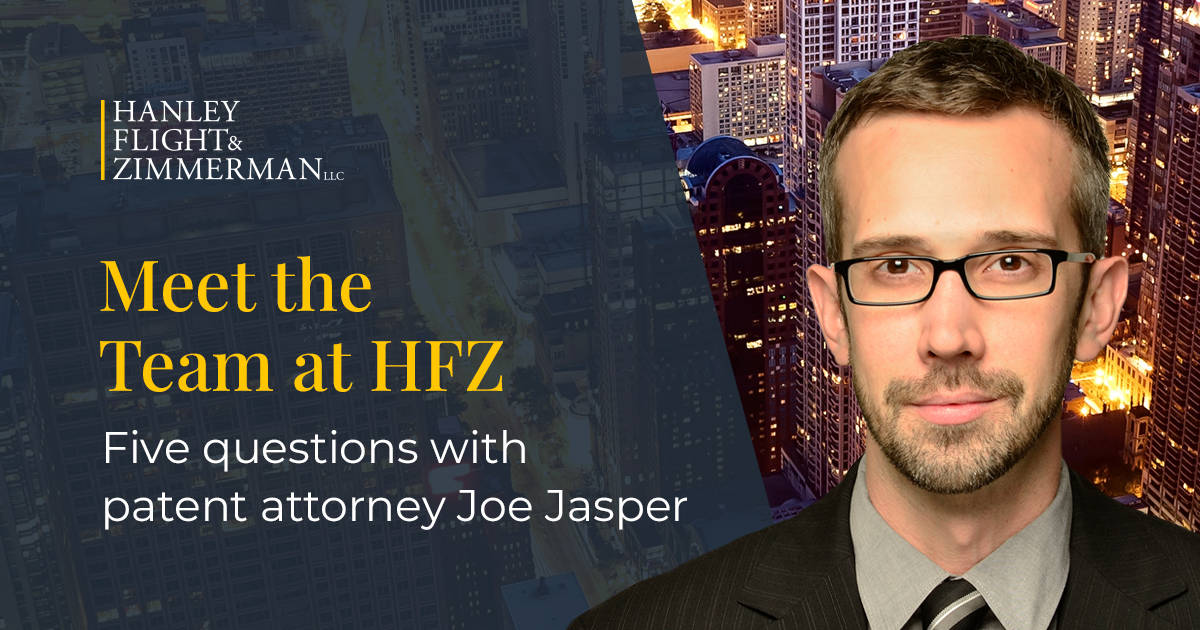In a world driven by innovation and technology, patent law is an exciting and fulfilling career path for engineers seeking new challenges and opportunities. At Hanley Flight & Zimmerman, we have witnessed firsthand how engineers can leverage their technical expertise to excel in patent law.
In addition to two of the firm’s founders, Mark Zimmerman and Mark Hanley, many of HFZ’s patent attorneys started their careers working in the engineering field before studying law.
“It’s a great career path for an engineer,” said Michael Zimmerman, an electrical engineer who transitioned to patent law and has been with HFZ for nearly two decades.
Another longtime HFZ patent attorney, Sergio Felice, worked as a mechanical engineer after earning his undergraduate degree. Reviewing patents during his time as an engineer opened his eyes to a more rewarding opportunity in intellectual property law.
“I always had a desire for learning about new technologies,” he said. “I realized that as a patent attorney, I could mesh the two worlds of engineering and law.”
HFZ protects the innovations of some of the world’s leading corporations, meaning our team is constantly exposed and learning about new technologies. In addition, here are more reasons why patent law is an ideal career pivot for engineers, and how HFZ provides the necessary training and mentorship for engineers looking to make this transition.
The Intersection of Engineering and Patent Law
Engineers are inclined to think analytically and solve complex problems, making them a perfect fit for patent law. At HFZ, we recognize that engineers bring a unique set of skills and perspectives to the legal world. Our team of patent attorneys and engineers have discovered the value of their engineering backgrounds in patent law, and they thrive in this dynamic environment.
Utilizing Technical Expertise: One of the key reasons engineers are drawn to patent law is the opportunity to apply their in-depth technical knowledge to protect and advocate for intellectual property. At HFZ, we focus on patent prosecution, the process of drafting and submitting patents for approval, and this focus gives our clients the highest patent protection available. Our patent engineers and attorneys at HFZ specialize in working with inventors, scientists, and engineers to secure patents for their groundbreaking inventions. This close alignment of skills and passion fosters a sense of purpose and satisfaction in our team members.
Problem Solving: Engineers are renowned problem solvers, and this skill translates seamlessly into the world of patent law. Identifying novel solutions to patentability challenges, analyzing intricate technical documents, and drafting forward-looking patent applications all require the same analytical thinking and innovative problem-solving mindset that engineers excel in. This foresight enables them to draft patent applications with a strategic edge, helping clients stay one step ahead in an ever-evolving technological landscape.
HFZ’s Approach to Career Transition
Transitioning from an engineering career to patent law may seem daunting. That’s why HFZ developed a structured pathway to help engineers successfully transition into this rewarding field. Our approach bridges the gap between engineers’ technical expertise and burgeoning legal knowledge.
Becoming a Patent Engineer: At HFZ, engineers first become patent engineers, a pivotal step in their journey to becoming patent attorneys. In this role, they work alongside seasoned patent attorneys, gaining invaluable experience in patent prosecution and patent portfolio management. This hands-on experience allows engineers to develop a deep understanding of patent law while leveraging their technical backgrounds.
Studying Law: We encourage our patent engineers to pursue legal studies, often through part-time or online programs, while they continue to work at HFZ as patent engineers. This dual approach ensures that they are well-equipped with both the legal expertise and engineering acumen required for success in patent law.
Mentorship and Guidance: HFZ is committed to providing mentorship and guidance throughout the career transition process. Our seasoned attorneys and patent engineers are readily available to support and mentor engineers at every step of their journey, offering insights, advice, and a supportive community.
How can I get started?
If you’re an engineer with a passion for innovation and an interest in intellectual property, consider making the career change to patent law with HFZ. Your engineering background is a valuable asset, and we are here to help you unlock your potential in the world of patent law. Contact us with your resume and embark on a rewarding career that combines your technical prowess with the intricacies of patent law.

